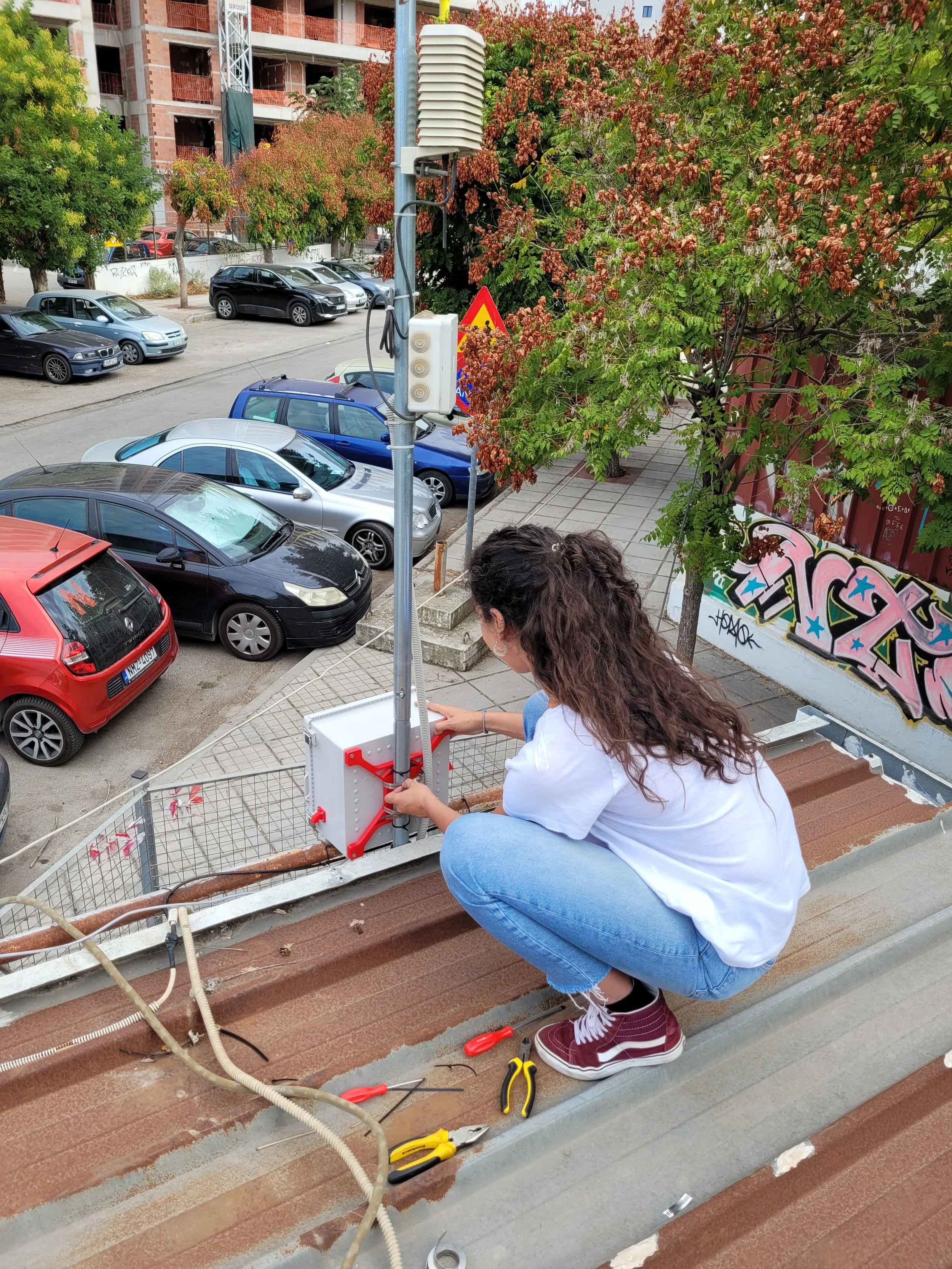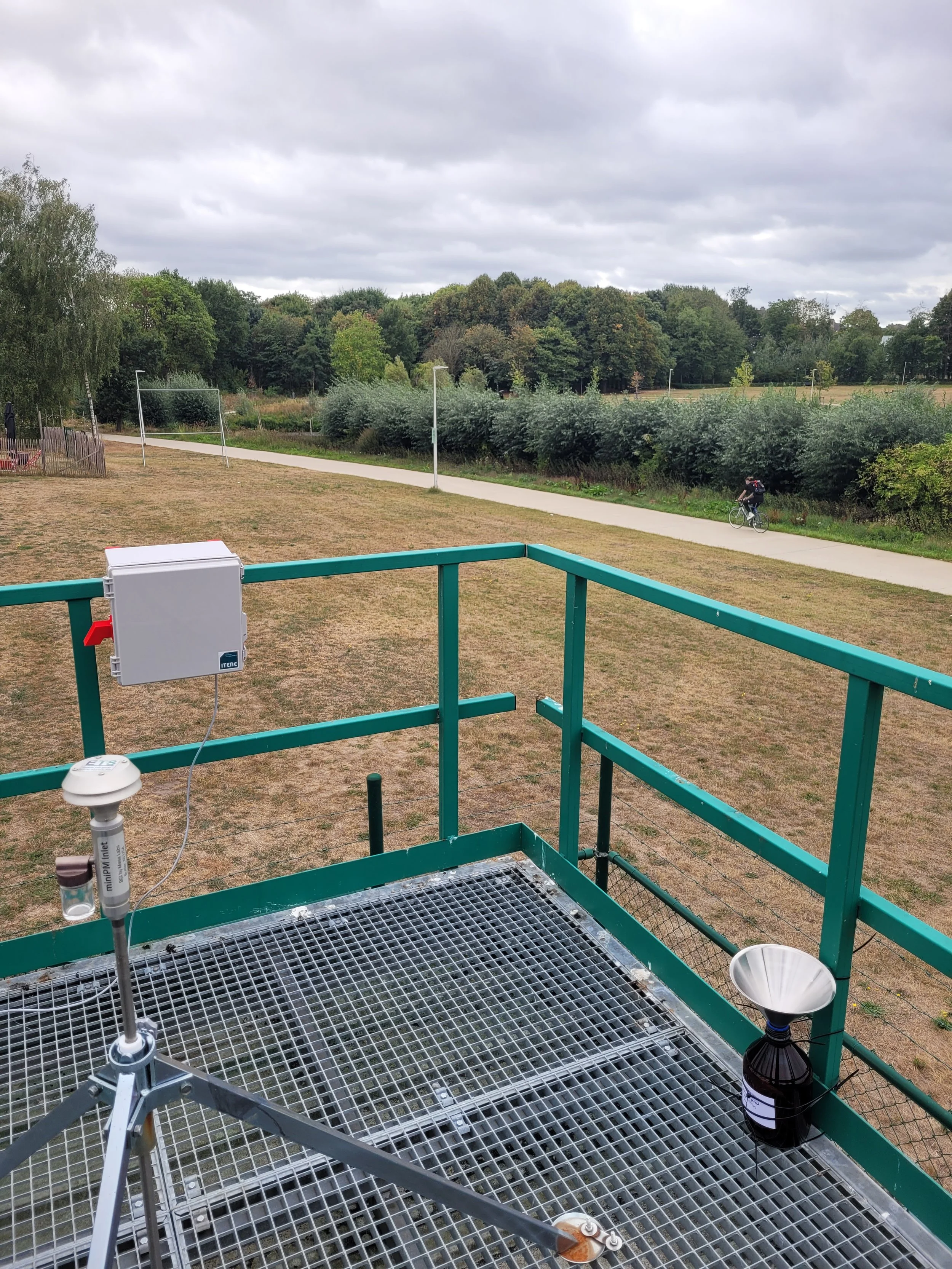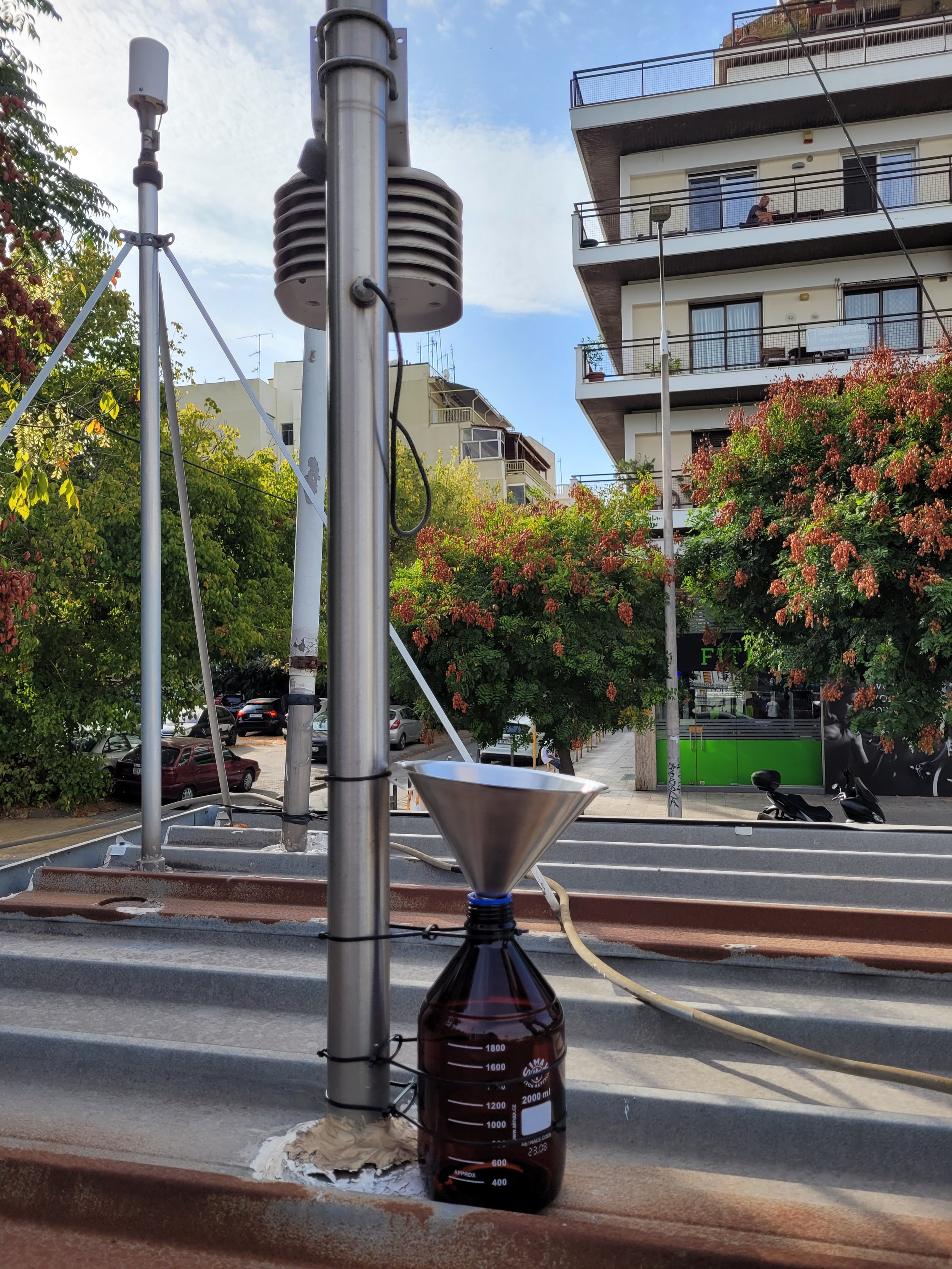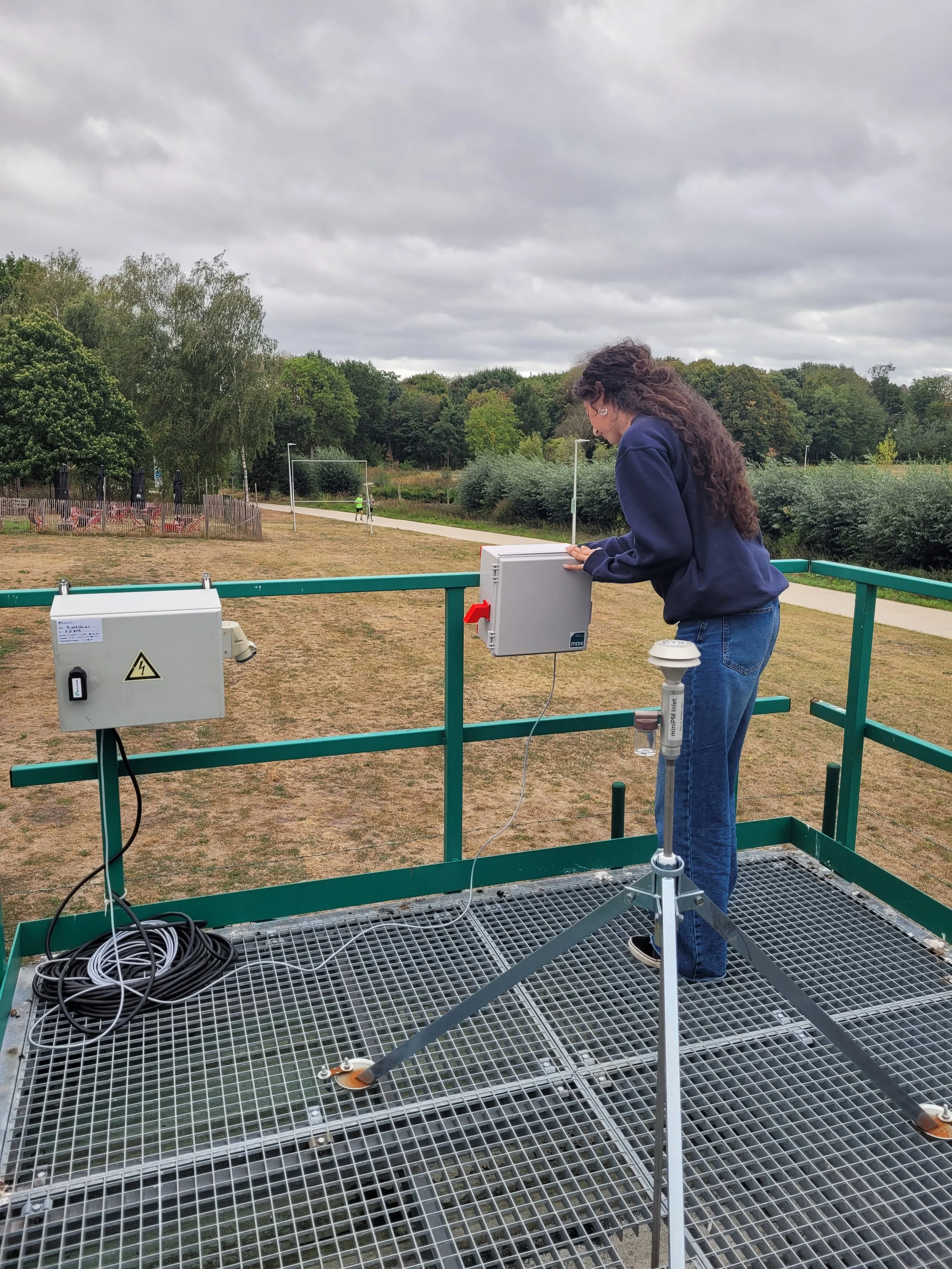New Device Installations to Monitor Pollutants in Pilot Cities
In September, ITENE research centre has successfully launched the installation of monitoring devices to track nanoparticles and micronanoplastics (MNPs). The first installations were carried out in Thessaloniki (Greece) and Hasselt (Belgium), marking an important milestone in the UPRISE project’s research activities.
Monitoring Invisible Pollutants
The installed equipment includes devices capable of detecting airborne nanoparticles as well as passive collectors designed to capture micronanoplastics in the environment. These monitoring tools will help researchers better understand the prevalence of such invisible pollutants and their potential impact on human health.
Seasonal Data Collection
The monitoring campaigns will be conducted two weeks per season in each pilot city. This approach is designed to capture potential seasonal variations in nanoparticle and MNP levels. Data collected during these campaigns will be analyzed and compared with model simulations, ensuring a robust understanding of how these pollutants behave in real-world urban environments.
Advancing Public Health Research
By generating reliable datasets on nanoparticle and MNP presence in Thessaloniki and Hasselt, this initiative represents a crucial step toward identifying health risks associated with emerging invisible pollutants. The findings will contribute not only to the UPRISE project’s objectives but also to broader efforts to safeguard public health and the environment.




